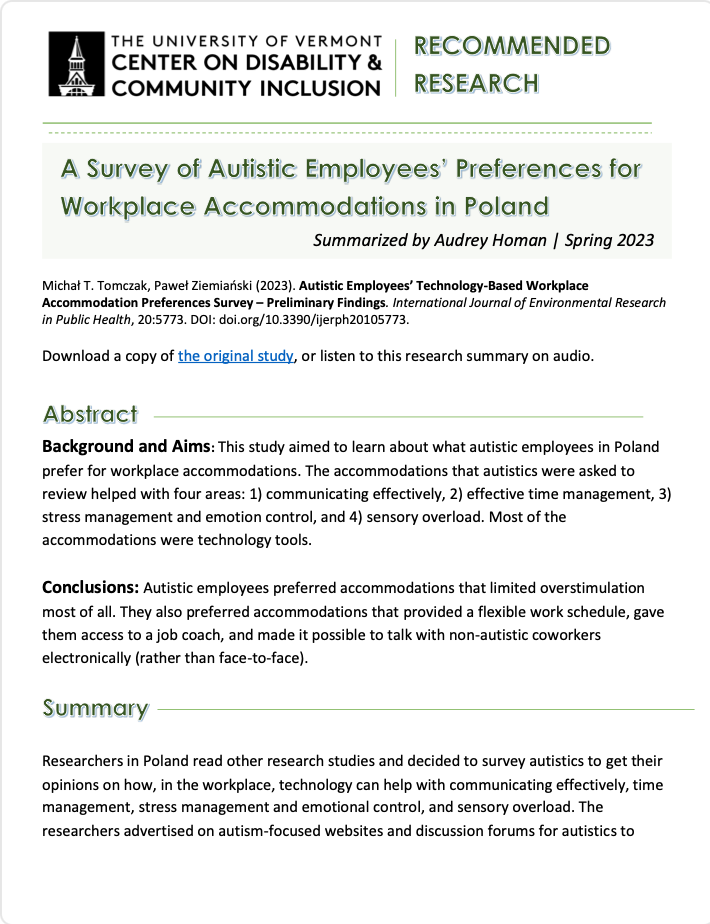 What was this study about?
What was this study about?
This study aimed to learn about what autistic employees in Poland prefer for workplace accommodations. The accommodations that autistic people were asked to review helped with four areas:
- communicating effectively
- effective time management
- stress management and emotion control, and
- sensory overload.
Most of the accommodations were technology tools.
What did the study find?
Autistic employees preferred accommodations that limited overstimulation most of all. They also preferred accommodations that provided a flexible work schedule, gave them access to a job coach, and made it possible to talk with non-autistic coworkers electronically (rather than face-to-face).

